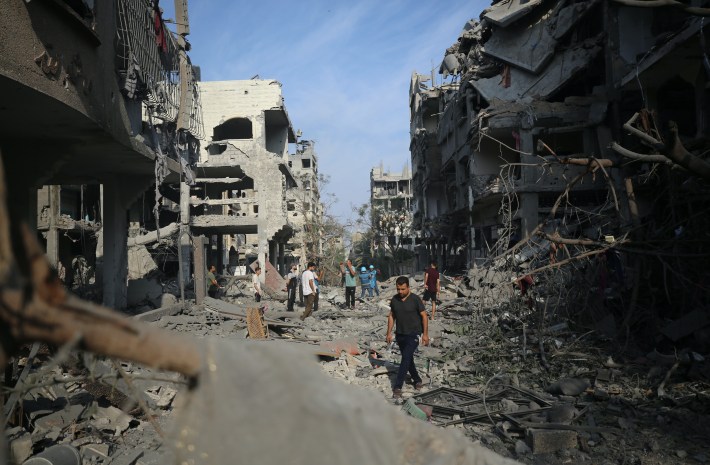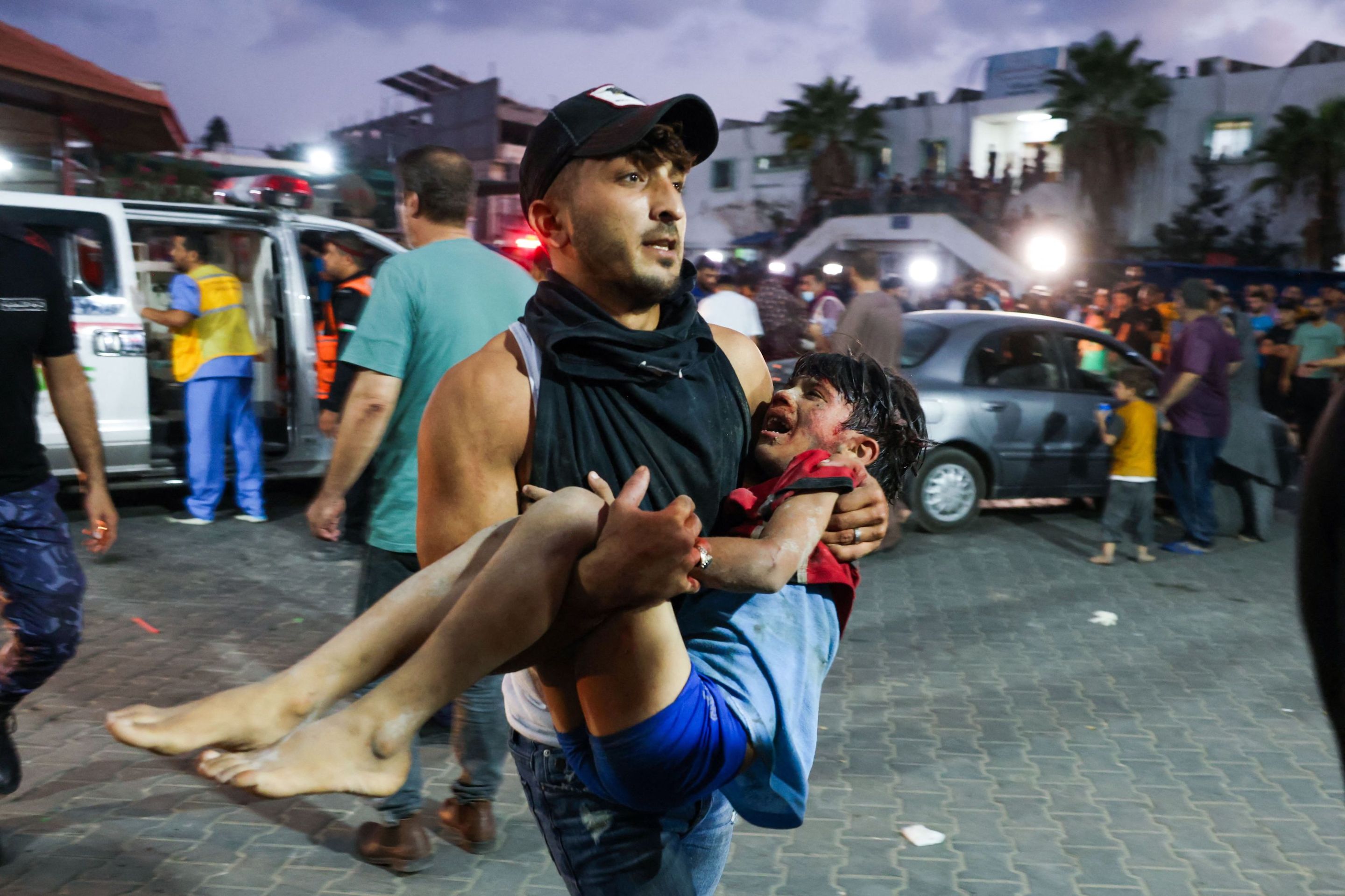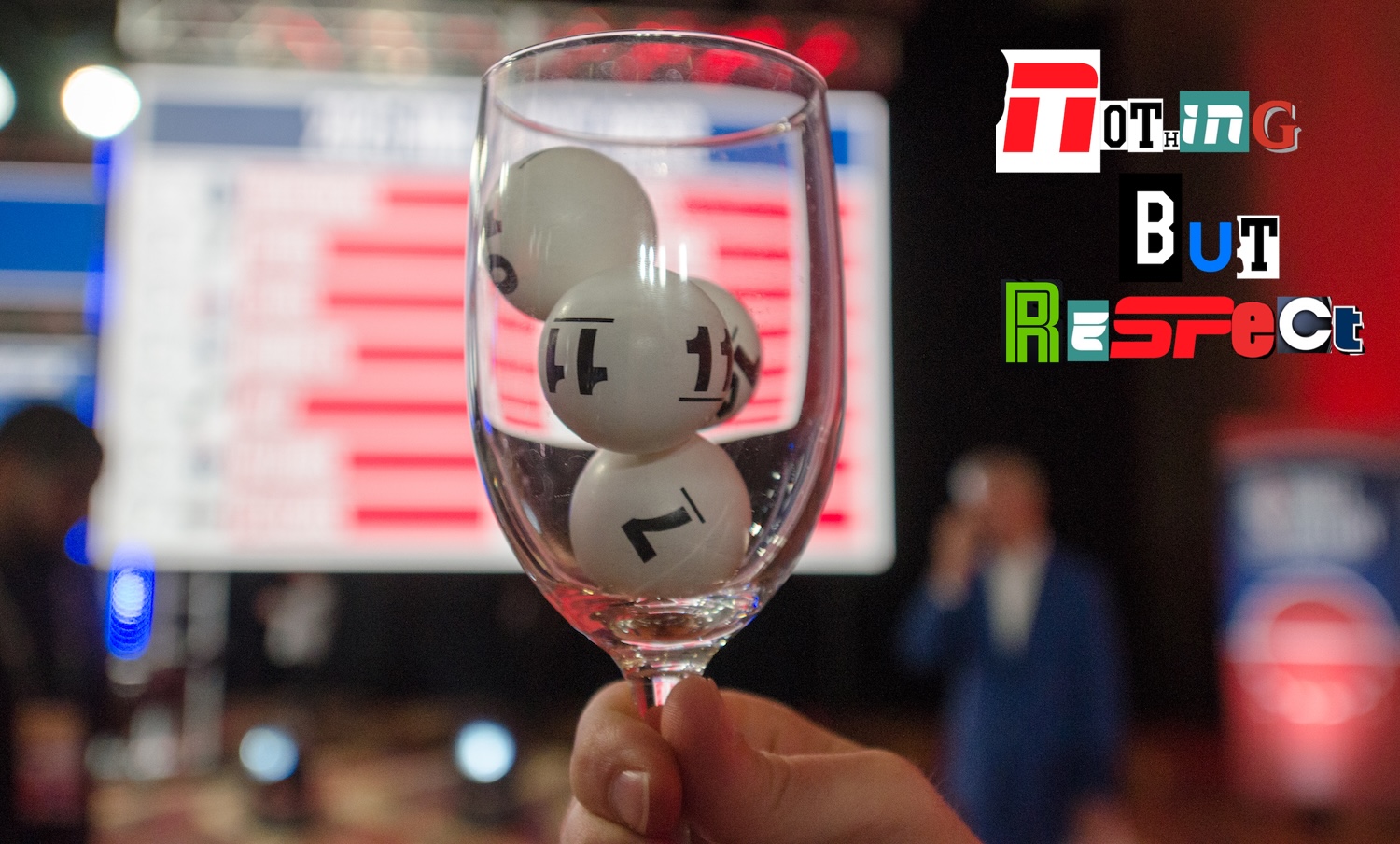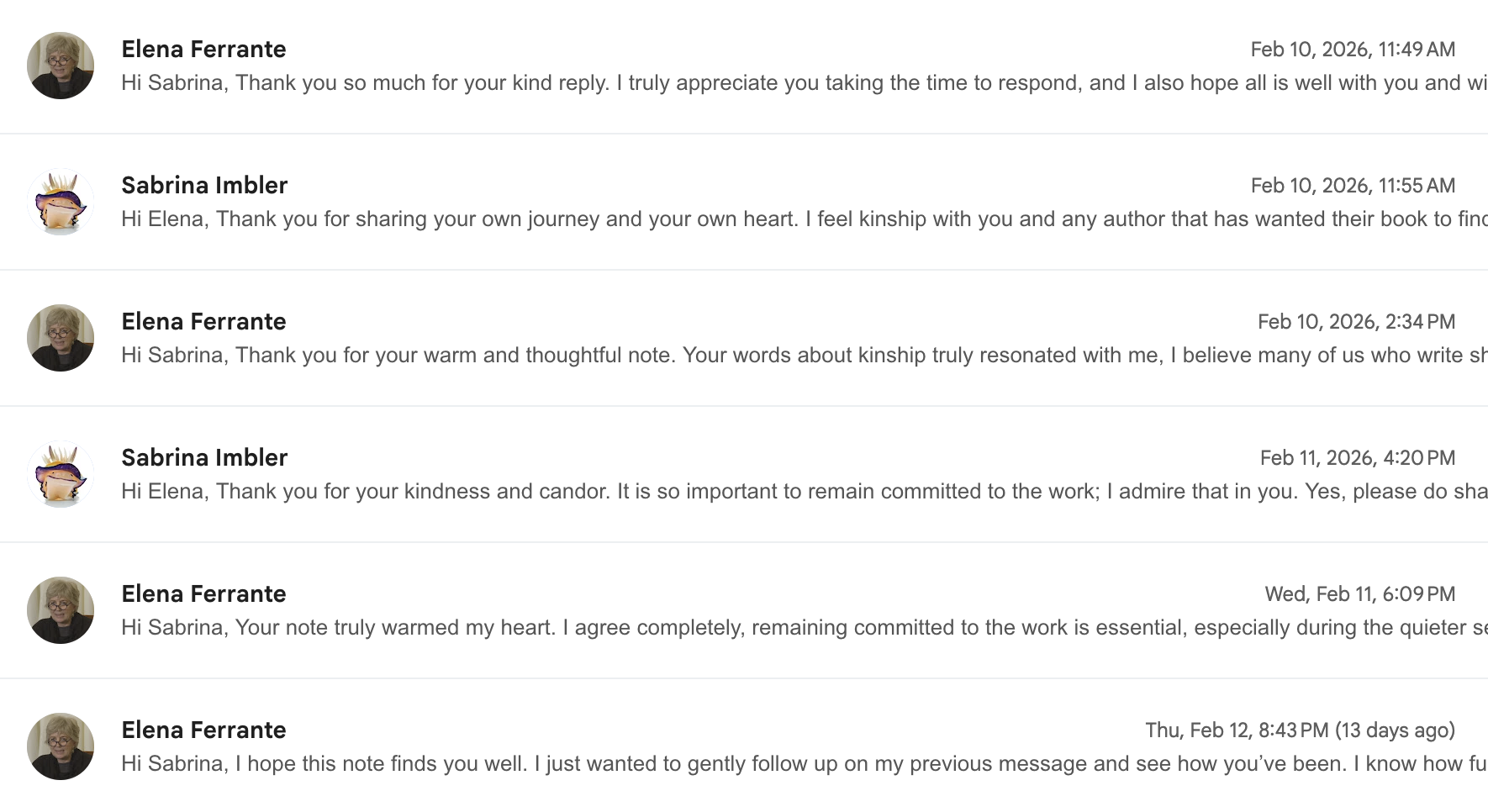The past week of violence in Israel, with a total death toll of 2,200 and climbing, has led to a constantly repeated talking point that this is its 9/11. Setting aside the myopia that requires something to be compared to an American equivalent, the characterization is unintentionally accurate: The aftermath of a tragic attack has become the impetus for blind bloodlust and a barrage of grotesque loyalty tests, a gross moral simplification that will be used as justification for subsequent atrocities 10 times as deadly.
The start of this latest cycle of bloodshed occurred on the morning of Oct. 7, when Palestinian militant groups led by Hamas launched a surprise attack from Gaza. While thousands of rockets were fired at Israel as a distraction, armed fighters surpassed the barrier using drone bombs to cut off communication and defense systems, then secured the area so that a wheel loader could break through the border fence; more Hamas fighters streamed through to kill hundreds at nearby military bases, settlements, and a music festival.
Despite the most advanced defense technology in the world and an army funded with billions of dollars from the United States, Israel was entirely unprepared for the attack by a group of roughly 1,000 fighters. Hamas militants caught them by surprise in their bases and at checkpoints; they took approximately 150 hostages.
Israel’s response to the attack has been to bomb Gaza and its residents, eschewing precision. The population of Gaza is around 2 million, with children making up close to half that number. Since 2007, Israel and Egypt have imposed blockades on the territory, effectively turning it into an open-air prison routinely bombarded through the IDF’s gruesome strategy of “mowing the grass.” In 2012, a United Nations report predicted that the area would be uninhabitable by 2020. U.N. secretary-general António Guterres once called the conditions for children “hell on earth.” When Israeli Prime Minister Benjamin Netanyahu told the residents of Gaza to evacuate before the bombing began, Israel was bombing Gaza’s only border crossing with Egypt. Nowhere was safe, and there was nowhere to go. Even the U.N.-affiliated schools were targets.
Israel’s defense minister Yoav Gallant announced another step on Monday: Resources to Gaza would be shut off. “No electricity, no food, no fuel, no water,” he said. “Everything is closed. We are fighting human animals and we act accordingly.” Collective punishment for civilians is a war crime, but international law has not deterred Israel before, because this has been its strategy in Gaza over two decades, secure in the knowledge that no nation will intervene. Many of those nations have asserted Israel’s right to defend itself, which is manifesting as the bombing of one of the most densely populated places on the planet.
Ukrainian President Volodymyr Zelensky, his own country currently fighting off an invasion, voiced full-throated support for the occupiers. The reaction reached a post-9/11 level of absurdity where the mayor of Providence, R.I., flew an Israeli flag. Many politicians called the attack “unprovoked.” As Jonathan Cook wrote last week for Middle East Eye, “the so-called opposition will not hesitate to support the military pounding of the long besieged enclave of Gaza, killing yet more Palestinian civilians to ‘teach them a lesson,’ a lesson no one in Israel can articulate beyond asserting that Palestinians must accept their permanent inferiority and imprisonment.” There has been a willful amnesia or a lack of knowledge about the last 75 years that adds crucial context about why Hamas might attempt such an attack, or why Gazans might try to escape. On Saturday, the occupiers experienced the daily life of the occupied—the fear, the powerlessness, the indiscriminate death—and it altered them.
To understand what drove such actions isn’t to excuse it; in order to avoid more death, there must be acknowledgement of the conditions that led to this. There is not enough time to go over the full history of the occupation—you could start with the Nakba in 1948 or the Balfour Declaration in 1917—but what happened this week was the result of apartheid. The Israeli government, which in the past year under Netanyahu has become fanatical and far-right even by the standards of the typical Israeli cabinet, did not pull the trigger, but it loaded the gun. This is no extremist opinion—it can be found in places such as the Israeli newspaper Haaretz. “If you tell someone that pouring gas on a pile of shredded newspaper and then throwing a match on it will probably make the newspaper catch on fire, you are not ‘supporting fire’ or ‘justifying fire,’” Jon Schwarz wrote at The Intercept. “On the contrary, you’re trying to reduce the amount of fire in the world by describing reality.”
Since January, Israelis have held demonstrations against their government and Netanyahu's seizure of executive power. Even the Israeli center was sick of his corruption. He is a man who has no other motivation but control. It is no secret that he strategically allowed Hamas to function in Gaza so that the Palestinians there could be isolated from the Palestinians in the West Bank; it is policy.
There would be a distinct arrogance in restricting the movement of 2 million people, depriving them of resources, bombing them while the settlers pull up seats to watch, and then assuming there would never be retaliation. I think Netanyahu is that arrogant, but he's not dumb enough to believe it. The occasional outbreak of violence is expected and accounted for, and useful for retaining and expanding power. It is policy, too.

The last time Gazans tried resistance on a large scale, it was during the Great March of Return, which began in 2018. Every Friday for over a year, demonstrators walked to the Israel-Gaza border to protest the blockade and demand their land back. In response the Israeli military killed 223 of them and injured nearly 8,000 more. One IDF sniper, speaking to Haaretz, said that he shot 42 Palestinians in the knee over the course of one day of protests. Journalist Shireen Abu Aqleh was fatally shot by Israeli forces in 2022 while doing her job; the IDF denied responsibility before reluctantly admitting it could have been one of its soldiers, then declined to identify or hold anyone accountable for her killing. At Abu Aqleh’s funeral, Israeli police kicked and beat the mourners carrying her casket. Look beyond the flashpoints that reach the international news cycle, and every day there is another instance of someone being beaten, maimed, or murdered in order to maintain the Palestinian population’s status as subordinate. “The world would be better off if it had more actual, committed, principled pacifists,” the philosopher Olúfẹ́mi O. Táíwò wrote. “But I suspect that what we have instead are mostly people who believe that violence is only the legitimate province of some people, and what is morally required of everyone else is submission.”
The bulk of the Western media has consistently presented this occupation as a fairly matched conflict, ignoring the stark ratio of Israeli to Palestinian casualties and injuries in the past 15 years. In news coverage, the Israeli’s life is considered infinitely more valuable than the Palestinian’s: when Israelis are described as “killed,” while Palestinians are “dead”; when a headline reports that a protestor was shot without identifying who fired the gun; when a CNN host allows a sitting U.S. senator to call for genocide. Mainstream media takes no interest in framing the Palestinian as an equal human, only as an equal combatant. The irony is rich when a clueless celebrity shares a photo of who they think are vulnerable Israelis, then deletes it when it turns out they are actually frightened Gazan children. It becomes a choking hazard when another prays for Israel while sharing a photo of a bombed-out section of Gaza.
And in the instance when a Palestinian, like Mustafa Barghouti or Husam Zomlot, is invited to speak on TV, they are first asked to condemn Hamas despite no connection to the group. From the outset, the speaker is bombarded with disclaimers and diminished. “When an Arab voice is heard it is selected in such a way as to make the least impression or [...] when a representative Arab view is put forward it is either by a Western expert or it is a quasi-official Arab ‘statement,’” Edward Said wrote in The Question of Palestine. “Quantity and quality are kept equivalent.” There are more mediums now than when he wrote that in 1979: Direct coverage from Gaza can be found via the efforts of Motaz Azaiza, Ali Jadallah, or Majdi Fathi, to name a few, as well as through aggregators on social media.
For all of these reasons and more, the calls ring hollow for both sides to stop the violence. There are no places for Gazans to go, no avenues for them to seek basic human rights, no punishments to deter further war crimes. Violence is wrong. Protests are callous. Boycotts are forbidden. Lectures are canceled. Speaking out results in unemployment. Can these armchair diplomats come up with an option for Palestinians besides dying slowly or dying quickly? And why do so many of them take glee in that choice?
There is an unspoken but notable fervor among Western cheerleaders to see Arabs killed while letting another country take responsibility for it. There is an appetite for death at a level not seen since Sept. 12, 2001. Each time I open Instagram, there’s a new blown-out building, corpse, bloodied child. Israel is committing war crimes in broad daylight and the bulk of the world is cheering them on. This is no solution, and it is not intended to be one. The only path to lasting peace is if Israel ends its occupation, the longest in modern history. Until then, the situation will never improve, can never improve. The Israeli leadership holds the power, but they will not be the ones to suffer the consequences. To this day, people around the world are still paying for decisions made by the U.S. in the aftermath of 9/11. We will learn no different lesson this time.






